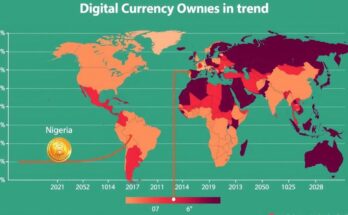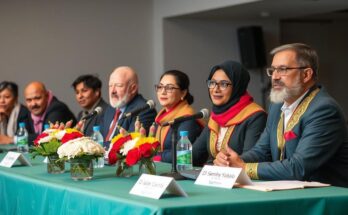Russia and Zimbabwe have completed their first joint geological mission in the Magondi belt, where rock samples were collected and paleontological discoveries were made. This collaboration has led to the creation of two environmental monitoring stations at the University of Zimbabwe to enhance the understanding of local ecosystems and climate patterns.
In a notable demonstration of international collaboration, Russia and Zimbabwe have carried out their inaugural joint geological expedition. This mission involved specialists and students from both the University of Zimbabwe and the Russian State University for Geological Prospecting. The expedition concentrated its efforts on the geologically significant Magondi belt located in northwest Zimbabwe, where the team successfully gathered rock specimens and uncovered paleontological findings. Furthermore, this partnership led to the establishment of two environmental monitoring stations, named ECOGEOSCAN 1 and 2, situated at the University of Zimbabwe. These stations represent a significant advancement in bilateral scientific collaboration, aiming to enhance the research surrounding local ecosystems and climate dynamics, thereby improving the understanding of the geological development of this region of Africa.
The joint geological mission between Russia and Zimbabwe marks a pivotal moment in scientific collaboration and research in geology and environment. The Magondi belt is a critically important geological region, known for harboring various geological formations and potential resources. The collaboration not only provided opportunities for knowledge exchange between Russian and Zimbabwean scholars but also established infrastructure for ongoing environmental research and monitoring, crucial in the context of global climate change and ecological preservation efforts.
The successful execution of the Russia-Zimbabwe geological expedition highlights the importance of international scientific partnerships. By merging expertise from diverse backgrounds, the teams not only advanced geological studies but also laid the groundwork for ongoing environmental monitoring that will contribute to understanding ecological changes in the region. This expedition serves as a foundation for potential future collaborations aimed at benefiting both nations and contributing to global scientific knowledge.
Original Source: iafrica.com




